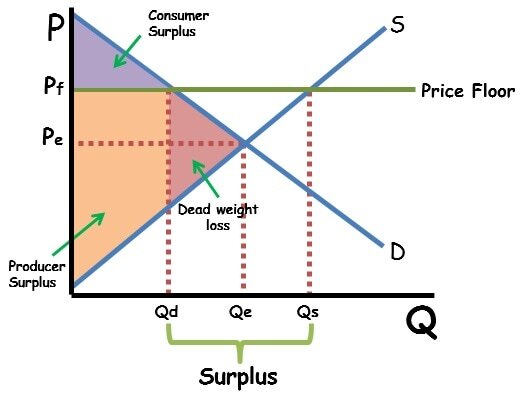- cross-posted to:
- economics@lemmy.world
- cross-posted to:
- economics@lemmy.world
This has been studied over and over and always with the same results. The economy isn’t hampered, jobs aren’t replaced by machines and overseas workers, the cost of goods doesn’t go up, and factories don’t close. The main impact is that quality of life increases, health spending increases (now that people can afford to take their kids to the doctor), and corporate profits decrease very slightly.
Especially in this economy of runaway corporate greed, we need a meaningful increase in wages
corporate profits decrease very slightly
This is the thing that people will reflexively point to, but this:
quality of life increases
This is the real issue. If quality of life increases, workers are less desperate, and are less willing to put up with their employers BS. Moreover, if other jobs are also paying a living wage, it’s much easier to quit.
We have seen, over and over, that businesses are willing to spend money to exert control over workers. They’ll do it even if it means a decline in profits, or even in revenue. Because at the end of the day, if you have your needs met, any money left over is just power, and power is meant to be used to control others.
Especially in this economy of runaway corporate greed, we need a meaningful
increase in wagesrevolution to eliminate those corporations and the systemic rewarding of greed.The fact that they could increase wages and still make money while improving society but don’t, is why they don’t deserve any more benefit of the doubt, or room to continue hoarding wealth and power as they are, because a system that craves constant growth at any cost will never stop on its own (nor provide paths for reform).
Oh jobs are replaced by machines, it just has almost nothing to do with minimum wage. Machines cost pennies on the dollar for production value compared to humans. The human wage is pretty meaningless at that point, even forced labor is less profitable.
I think part of the issue is how business accounting practices work. When you buy a machine, you can call it a capital investment and count its value as an asset. When you hire a person and cultivate them for years, from an accounting perspective their salary is strictly a liability / expense. Even though that person is an asset in every other way, our standard accounting practices don’t reflect that.
Accounting practices reflect exactly what is relevant to profits within the desired time frame. There are no laws that make employee seniority valuable within the business cycle, so it has no value to account for.
The investment that business sees is like you spending a thousand dollars a year for a century in order to make a million dollars. Sure it’s a 10 to 1 return on investment, but you’ll be dead, so is it really worth it?
But, the line must go up…
All of those things do happen, they just happen irregardless of minimum wage being raised. Like, the machines are coming for all jobs eventually, that’s not a reason to not raise the wage for living workers.
IrregardlessregardlessLike it or not, it’s in the dictionary. =p
It’s also in Mean Girls 🤭
Remember that a definition is not an endorsement of a word’s use.
What’s your point? Because it sounds like you are saying people don’t deserve a living wage.
That’s not at all what I said. Everyone deserves a living wage and the US min wage is insultingly low.
So again, what’s your point.
I was agreeing with the person I was replying to, but reframing it. Automated jobs and outsourced jobs are not caused by increases to minimum wage.
Increasing minimum wage puts more money in the economy which people will spend which puts more money in businesses so they can pay their people more putting more money in the economy.
The only reason the wealthy don’t like this is because their money passes through the hands of the unclean masses instead of going directly into their offshore tax haven accounts.
Yep.
Give a rich man a dollar and all you’ve done societally is remove a dollar from the economy. If you instead make him give that money to his employees things change, but cause poor people actually need money and will spend it.
You give a poor person that dollar through increased minimum wage and they spend it at a business. That business now makes more money, which is passed on to its employees through the increased minimum wage, and they spend that dollar again.
And again.
And again.
That dollar you took from the rich and gave to the poor drove a lot more than a dollar’s economic activity.
OH - and it’s also taxed every time it changes hands, so it also brings in more than its initial value in tax revenue.
The dollars are soiled by passing through the hands of the poor, though.
Don’t worry, the rich are here to laundry the money until it is clean again.
In Brazil, a LinkedIn “influencer” was roasted because he said the if you a 100 to a rich person they would invest it and “make it” into 120 in a year, while of you give the same 100 to a poor person, that money is “lost” immediately.
Maybe an analogy makes it clearer: the economy is the blood flow, formed by services and products. Money if the fat in the blood. It’s necessary for the system and without it it doesn’t work right. But if it forms a clot then there a problem.
I’m not sure how true this is, the rich still invest huge amounts of their money in businesses, while they shouldn’t have that much to begin with it’s still in the economy for the most part
Well, there are three points on that:
- Business investment doesn’t need money from the rich, it just needs any money, resources and manpower. Shareholding means lots of non-rich can supply the money (it’s not the rich that are needed, it’s the money) and structures like Cooperatives mean that many businesses can be made by people just pooling their work and resources. Theoretically at least mass Shareholding should make for a more robust business environments because many people investing should have a lot more variety (hence making the whole more resilience to the kind of unforeseen changes that cause Crashes) in terms of what’s invested in and the investment objectives than just a few people.
- The money being too concentrated together with the current Ownership Laws (mainly Land Ownership, though in some areas also Intelectual Property) actually crowd out most news businesses because of how expensive it is to launch most business ventures, not just directly but even in terms of the founders themselves being able to afford being out of work whilst they launch a business. Notice how even in big cities but especially in smaller cities and even towns, stores are closing and those spaces remain closed for months or even years. The money and property concentrated in fewer hand has the leverage to demand huge rents from the rest of Society to be able to use those thing they’ve locked-in through ownership and that’s killing lots of business at the start stage and even stopping the business ideas themselves from ever being put in practice. It’s “funny” that the rich having all the money creates a situation were so much money is needed to launch a successful business that it can only work with funding from the rich - nobody is going to create, say, a large restaurant chain from the humble beginning of a single venue in a small town when the necessary realestate to expand or even just start costs many times more to rent or buy than it did back in the 60s and 70s when so many of todays big name such chains started just like that.
- The actual value of more investment depends on were the bottleneck is in the Economy: supply side or consumer side. There is no point in adding more businesses (i.e. Production) if there’s a lack of demand (i.e. Consumption) because median incomes are too low. If you look around (just notice companies nickel & diming customers) we currently have a lack of demand, not of supply, so money going into investment just makes the problem worse whilst money going (via better wages) into consumption would help.
This was not at all my point though, I’m not saying billionaires are needed I’m saying they do actually put their money into the economy, most are not just sitting on a dragon horde
True.
It is, however, on the wrong side of the Economy (at least at the moment) and as I pointed out they distort the Economy itself in negative ways mainly due to how much easier it is for them to leverage their footprint for rent seeking and crowding other investment out.
And don’t get me started on how they use their money to buy the political power in Democracy, corroding it, which also feeds into distortions of the Economy via the Lawmaking process.
The rich merely sitting on their horde would’ve actually been less negative for the rest of Mankind.
The only reason the wealthy don’t like this is because
theirour money passes through the hands of the unclean masses instead of going directly into their offshore tax haven accounts.Ftfy
Well corrected.
Where I live, Washington, the minimum wage is $16.28 p/hour. Across the border in Idaho, the federal minimum applies — $7.25.
Businesses on the higher-wage side of the border are doing fine, and Spokaners do not drive across the border into Coeur d’Alene for cheaper groceries or a half-price Big Mac.
Spokaners do not drive across the border into Coeur d’Alene for cheaper groceries or a half-price Big Mac.
I actively boycott any and all ID businesses, because of the state’s shitty labor and reproductive-rights laws and its nurture of Christofascism. They can Gilead all they want but it won’t be with my financial support.
They just come into WA for the medical center and clog up the system. ID residents should be banned from receiving medical care in WA.
They should not, but they should pay “out of state” fees if they make over a certain amount.
I think Idaho should have to cover those fees as a penalty for not providing healthcare. Spokane’s hospital is over capacity pretty often, and a good portion of them are from Idaho.
That sounds like interstate commerce, so any law requiring that would have to come from Congress
ID residents should be banned from receiving medical care in WA.
But I think accelerationist policies often hurt vulnerable people…
They can go to their own hospitals instead of placing the burden on Washington
Sure. But this is kinda just accelerationism/xenophobia, no? For example, replace “Idaho” with “Mexico” in your argument, and it gets pretty ugly pretty fast IMHO.
Mexicans are sick and tired of Americans and their medical tourism coming down to Mexico for affordable health and dental care
Are they? They seem to be happy to take our money.
Does it? I think Canadians have hospitals and they can use those. Not seeing the ugly.
I’m seeing you being slapped in the face with their point and just refusing to acknowledge it. Cringe AF.
And what, die? I think keeping people alive and preventing unnecessary deaths should be the priority first and foremost. Idaho should be made to improve their healthcare infrastructure, and then we can force them to stay in their state.
But as of right now, the idea of turning someone down at the hospital because their ID says a different state does not sit well with me.
Idaho needs to help Idahoans, and not push them onto another state.
Make Idaho great again!
So… Nobody should work across state lines… In the “United” states… Doesn’t sound very United.
Yeah. I live in Seattle and had to travel a lot for work. Going out to eat was about the same price everywhere. The only thing that was really cheaper I could see was gas.
California recently increased minimum wage, and despite this, people still live there.
More than that, California (last I checked) had the fifth largest economy in the world when comparing to entire countries.
I think they’ll do just fine.
Economic models keep most numbers fixed to simplify their math. They call it ceteris paribus.
So when economists claim that increasing wages will reduce the amount of jobs, they came to that conclusion by keeping corporate profits fixed while doing their math. So any business expense is paid for by reducing workers or wages.
In the real world corporate profits are not fixed and have grown faster than wages for decades.
Keep that in mind if an economist ever tries to claim increasing wages will reduce the quantity of jobs.
Right. The problem is, CEOs maintain that as “responsibility to their shareholders” to ensure their Q4 earnings reports prove continuous growth. So prices will inevitably increase, or overhead will be reduced to maintain those margins.
Profits can go down slightly as long as it’s expected. The stock market is weird and the thing nobody likes is unexpected falling numbers. Stocks can maintain or even increase in value if the report matches the predictions and expectations. Even if that prediction is a slight lowering in profits.
Because people make money on businesses doing poorly as well by short selling
Well that’s a different case. That’s when the stock price goes down. Not necessarily when profits go down.
The price of progress is oppression, and the outcome of progress is that those who oppress get to enrich their own descendants so they can continue to oppress.
The price of progress is not oppression as oppression is the opposite of progress.
You are confusing corporate profit with progress.
Removed by mod
deleted by creator
Nah, fuck all that.
Economists are also very aware of what they choose to keep fixed and what they choose to allow as a variable. It’s a science that’s incredibly easy to corrupt the results in. Which is why people really need to pay attention to who it’s giving the results.
Have we not known this for years?
I’ve always used it as an example of when oversimplified chalkboard economics don’t match experimental reality.
Are the “oversimplified chalkboard economics” basically the businesses winging about having to pay people more?
What follows is incorrect
It’s a price floor, which creates a deadweight loss.

Since we’re also consumers, it’s a net loss.
Tbf, economics has to presume inequality to be non existent. If they dont, inequality is the overriding factor that makes all the other forces at play pale in comparison. So, they remove inequality.
Again, tbf, in a world with no inequality, where only the very best and brightest rise to the top and not just a endless stream of nepo babies, with whole institutions in place to ensure a lack of social mobility, a national minimum wage would be a bad idea. Just like tax breaks for the rich would fix any problem you had, in that fake - made up world that could never exist.
But, as you allude to, in the real world, things are very different.
Should it not just be integrated in to the supply cost?
Yes, but how exactly that distorts the market is counterintuitive.
How so?
Intuitive chalkboard economics lead to the net loss conclusion above. Experimental reality as described in the study says otherwise.
Card & Kreuger has been held up by right wingers for ages as evidence to the contrary but it’s a very bad study
None of the people uttering that lie will care about this news.
Our corporation funded a study that says this study is wrong. /s
Corporations were bragging about record profits not that long ago, and then basically admitted to price gouging. Folks are extremely underpaid in most areas. Not shocked at all.
No shit
From the abstract of the actual study
We find that most studies to date suggest a fairly modest impact of minimum wages on jobs: the median OWE estimate of 72 studies published in academic journals is -0.13, which suggests that only around 13 percent of the potential earnings gains from minimum wage increases are offset due to associated job losses. Estimates published since 2010 tend to be closer to zero.
Card and Kreuger found this out when they did a large study back in the 90s when each state could finally set its own minimum wage.
If its a real business and not a grift or privtization of gains/socialization of losses, they will pay closer to the right wage to have the right people fill the chair
Removed by mod
The only thing increasing minimum wage must do is take money out of the wealthiest pockets.
And that’s why wages stay stagnant.
Every other argument is a red herring.















